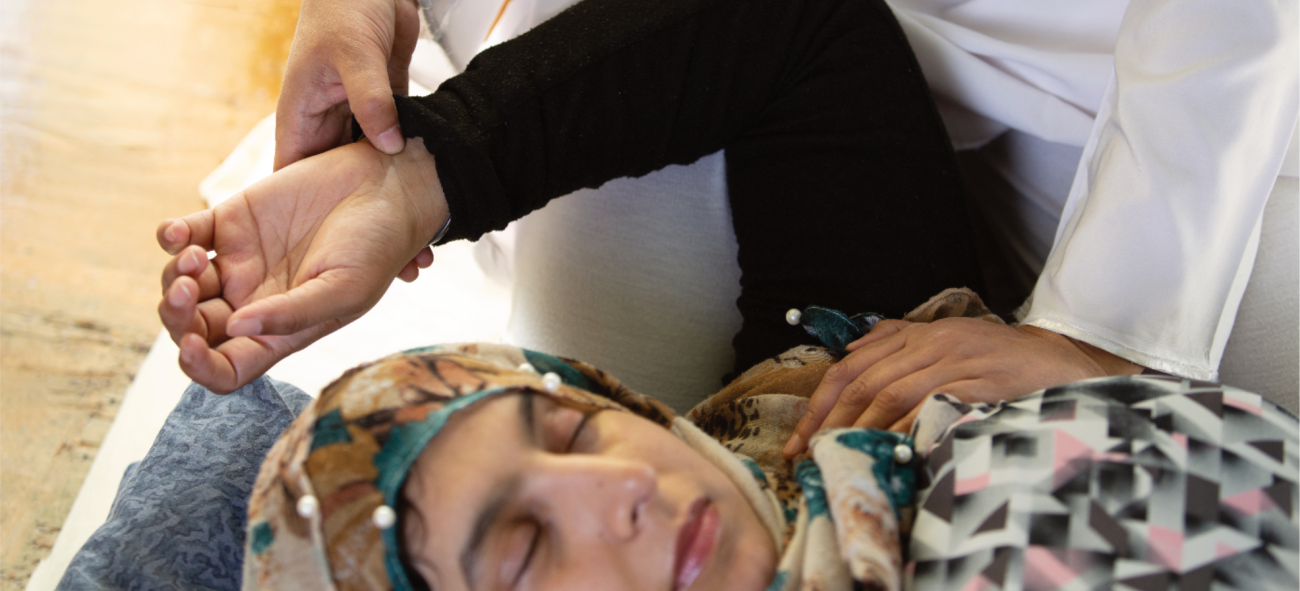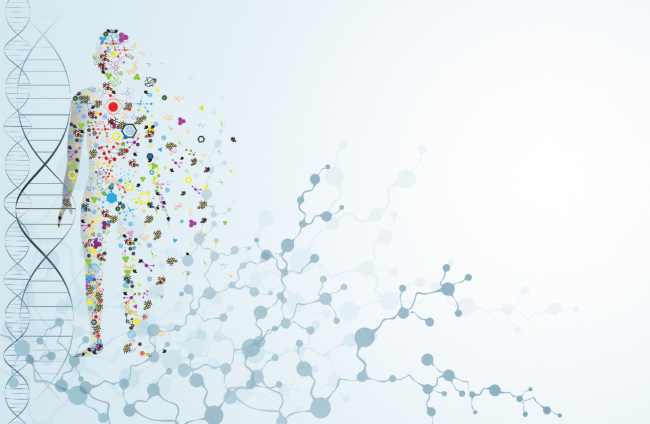The Shiatsu Society UK is dedicated to research in support of Shiatsu.
By research we mean studies that enable us to explore how, why and for whom Shiatsu can be safe and effective. Over the years the Society has engaged in various types of research with the aim of establishing an evidence base for the beneficial uses of professional, therapeutic Shiatsu.
Powerful experiential evidence of beneficial effects of Shiatsu

Our current strategy for Shiatsu research development builds on previous findings and focuses on the following areas:
-
Expanding and refining current understandings about Shiatsu’s efficacy
-
Exploring new study areas to advance Shiatsu research and practice
-
Pioneering novel research methods appropriate to the specialty and uniqueness of Shiatsu
-
Raising awareness by communicating our research to the general public and wider health community
-
Promoting local, national and international research links amongst Shiatsu practitioners

Shiatsu Research: What do we know?
We now have data showing that Shiatsu interventions can benefit a wide range of disorders and problems. Numerous research studies, articles, case studies and systematic reviews of Shiatsu, including randomised clinical trials, have been published in professional and peer-reviewed journals. As a result, the evidence base for Shiatsu is continuing to grow – in both quantity and quality (methodological rigour).

While a recent meta-study suggested that in some instances Shiatsu may show a slight advantage compared to procedures of conventional medicine, further research is needed to substantiate these findings.¹
Here we highlight a few summaries of some published outcomes which you may find useful.
Multiple research studies² have found that Shiatsu correlates with improvements to:
-
Back & Muscle pain
-
Menopausal symptoms
-
Fibromyalgia
-
Digestive problems
-
High blood pressure
-
Anxiety
-
Depression
-
Stress

Evaluating the impact of delivering Shiatsu at a general practice surgery in Sheffield, one study found that Shiatsu treatments led to significantly fewer doctors’ visits and reduced drug prescriptions for patients living with a range of chronic conditions.³
“ Shiatsu treatments over a five-week period lowered cortisol, adrenaline and norepinephrine in blood levels ”
In addition, some Shiatsu treatment studies have shown clinically beneficial shifts in stress hormones, as well as an improvement in sleep and activation of the immune system.⁴
Initial research into the well-being concerns of cancer and palliative care patients receiving Shiatsu in an outpatient clinic has indicated positive results.⁵ Evaluating the impact of delivering Shiatsu at a general practice surgery in Sheffield, one study found that Shiatsu treatments led to significantly fewer doctors’ visits and reduced drug prescriptions for patients living with a range of chronic conditions.³
An independent, cross-country evaluation of the benefits of Shiatsu, commissioned by the European Shiatsu Federation and led by a team of researchers at the University of Leeds, found that over a six-month period between 84% and 87% of participating Shiatsu clients felt that Shiatsu had been effective in treating their symptoms.
“ Overall total sickness absence from paid employment dropped by at least 50% ”

Based on the experiences of 948 Shiatsu clients in the UK, Austria and Spain, the study reported a healthier workforce with reduced sickness absenteeism. Additionally, a high proportion of clients made positive lifestyle changes taking increased rest, relaxation and exercise.⁶
Shiatsu Improves Health & Wellbeing
The results from these studies show that Shiatsu has great potential not only for strengthening and maintaining client health, but also for improving the quality of life for many people.
The studies also suggest that the reduced use of healthcare and medication has potential implications for reducing public healthcare costs and loss of work time due to illness.
As is often the case with research, it is clear that further studies are needed to evaluate systematically the impact that Shiatsu can have on health and wellbeing, but this is a very strong foundation on which to build.
References
1. Kleinau, A. et al. 2016. A Review of Shiatsu and an Endpoint Analysis (Meta-Analysis) of Controlled Studies on the Efficacy of Shiatsu Research. Available at https://www.researchgate.net/publication/331928783_A_review_of_Shiatsu_and_an_endpoint_analysis_meta-analysis_of_controlled_studies_on_the_efficacy_of_Shiatsu
2. Robinson, N. et al. 2011. The evidence for Shiatsu: A Systematic Review of Shiatsu and Acupressure. BMC Complementary and Alternative Medicine, 11:88. Available at: http://www.biomedcentral.com/1472-6882/11/88; Brady, H. et al. 2001. The Effects of Shiatsu on Lower Back Pain. In: Journal of Holistic Nursing. Official journal of the American Holistic Nurses Association 19 (1). p. 57–70.
3. Pirie, Z. 2003. The Impact of Delivering Shiatsu in General Practice. PhD thesis. University of Sheffield. Available at: http://etheses.whiterose.ac.uk/id/eprint/4214
4. de Albuquerque, A.C. et al. 2008. Effects of five weeks of a Shiatsu Therapy Programme on the Stress Phase and Blood Pressure of Hypertension Adults. In: Physical therapy in Movement 21(3):51-58; Yuan, S.L. et al. 2013. Effects of Shiatsu in the Management of Fibromyalgia Symptoms: A Controlled Pilot Study. In: Journal of Manipulative and Physiological Therapeutics 36 (7): 436–443. DOI: 10.1016/j.jmpt.2013.05.019.
5. Browne et al concluded further study with larger group of participants is needed for robust evidence. Browne, N. et al. 2018. Relieving pressure - an evaluation of Shiatsu treatments for cancer and palliative care patients in an NHS setting. In: European Journal of Medicine, 21:27-33.
6. Long, A.F. 2007. The Effects and Experience of Shiatsu: A Cross-European Study. Final Report. School of Healthcare, University of Leeds.
Building National & International Shiatsu Research Links

Amidst public policy debates on economic financing and healthy living in modern societies, we recognise it is important to participate in activities that can help to create wider knowledge links for sustained research into the science of Shiatsu.
This may mean fostering collaborative engagement with professionals from diverse disciplines, including scientists and other complementary and energy-based modalities. To this end, our approach is informed by strengthening collaboration with a number of professional organisations, including:
The Shiatsu Research Network
The Shiatsu Research Network is an international open platform for developing and supporting scientific research projects in Shiatsu. Its Vision is to have the potential benefits of Shiatsu and its mechanisms of action made visible in the wider world. SRN provides practical research tools and advice to assist practitioners to engage in research. its website has a comprehensive listing of published studies on Shiatsu.
https://shiatsu-research-network.org/wpe/
The Research Council for Complementary Medicine (RCCM)
RCCM is a charitable organisation with a mandate to develop high-quality research into complementary and alternative medicine (CAM). It works with CAM professional bodies such as the Shiatsu Society to facilitate information sharing and provides research-focused events which can assist CAM research.
The European Forum for Complementary & Alternative Medicine
SSUK maintains links with the European Shiatsu Federation (ESF) which is a member of the European Forum for Complementary and Alternative Medicine (EFCAM) and active in promoting collaborative effectiveness research in CAM.
International Society for Complementary Medicine Research (ISCMR)
ISCMR provides a platform for knowledge and exchange of holistic and integrative forms of medicine to enhance international communication and research collaboration.
Download this guide as a booklet
Updated Booklet as of 22 August 2022
| Document summary | Download | |
|---|---|---|
| |
(PDF) A4 Easy print - sequencial pages. Copyright 2019 3rd edition August 2022 |
Research For All (A4)
(5.61 MB)
|
| |
(PDF) A5 Easy print - designed to be printed in landscape mode on to A4 paper, back to back, folded & stapled to a A5 booklet Copyright 2019 3rd edition August 2022 |
Research For All (A5)
(3.77 MB)
|
Supporting Research
or if you would like to make a bequest or donation to the Shiatsu Society for the specific purposes of research